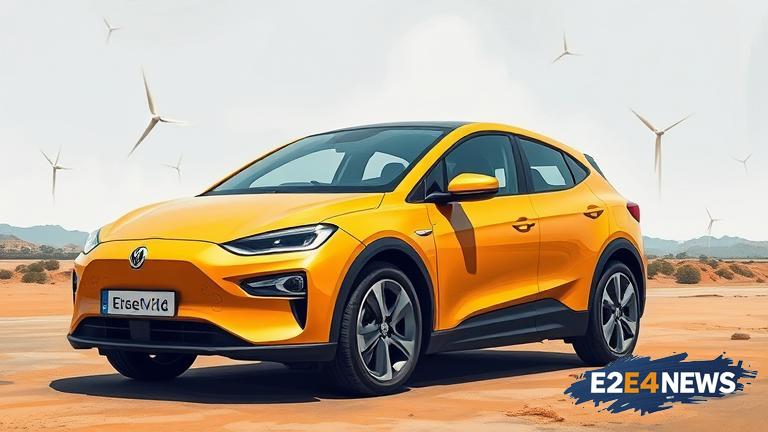The Indian government has announced a comprehensive plan to promote the adoption of electric vehicles (EVs) in the country. The plan includes a range of incentives and initiatives to encourage the use of EVs, including tax exemptions, subsidies, and investment in charging infrastructure. The government aims to have at least 30% of new vehicle sales be electric by 2030. To achieve this goal, the government will provide subsidies to manufacturers to produce EVs, as well as to buyers to purchase them. Additionally, the government will invest in the development of charging infrastructure, including the installation of charging stations along highways and in cities. The plan also includes measures to promote the use of EVs in public transportation, such as buses and taxis. The government will provide incentives to state governments to adopt EVs for public transportation, and will also encourage private companies to invest in EV-based transportation services. Furthermore, the government will establish a network of EV charging corridors along major highways, to facilitate long-distance travel by EVs. The plan also includes measures to promote the use of EVs in rural areas, where access to charging infrastructure may be limited. The government will provide subsidies to rural households to purchase EVs, and will also invest in the development of off-grid charging infrastructure. The plan is expected to have a significant impact on the environment, as EVs produce zero tailpipe emissions and can help reduce air pollution in urban areas. The plan is also expected to create new job opportunities in the EV manufacturing and charging infrastructure sectors. The government has set a target of having at least 50,000 public charging stations in the country by 2025. The plan has been welcomed by the automotive industry, which sees it as a major opportunity to invest in the production of EVs. Several major automakers have already announced plans to launch new EV models in the Indian market. The plan is also expected to encourage the development of new technologies, such as battery swapping and smart charging systems. The government will also establish a research and development fund to support the development of new EV technologies. The plan is a major step forward in India’s efforts to reduce its dependence on fossil fuels and transition to a more sustainable transportation system. The government has also announced plans to promote the use of EVs in other sectors, such as logistics and delivery services. The plan is expected to have a significant impact on the economy, as it will create new job opportunities and stimulate investment in the EV sector. The government has set a target of having at least 1 million EVs on the road by 2025. The plan is a major milestone in India’s efforts to become a leader in the global EV market. The government will also establish a national EV policy to provide a framework for the development of the EV sector. The plan has been welcomed by environmental groups, which see it as a major step forward in reducing air pollution and greenhouse gas emissions. The government will also provide incentives to encourage the use of EVs in the commercial sector, such as taxis and ride-hailing services.
